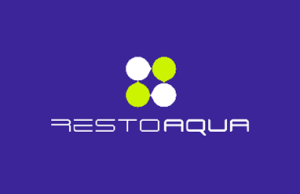
Creating a Strategy for Assessing and Restoring War-affected Aquatic Ecosystems (RestoAqua, No G6085)
Coordinating Beneficiary: Nature Research Centre
Project leader: dr. Danguolė Montvydienė
Research divisions: Laboratory of Ecotoxicology, Laboratory of Algology and Microbial Ecology
Source of funding: NATO Science for Peace and Security Programme (SPS MYP G6085)
Co-funding: Nature Research Centre
Partners: D.K. Zabolotny Institute of Microbiology and Virology of the NASU (Ukraine) and
Institute of Fisheries of the NAAS (Ukraine)
Duration: 2023-2025
Investigators at Nature Research Centre: dr. N. Kazlauskienė, dr. Ž. Jurgelėnė, dr. J. Karosienė, B. Gylytė, dr. M. Stankevičiūtė
The war in Ukraine has severely impacted aquatic ecosystems, which are crucial for food security and the economic and social development of the country. Military activities have resulted in the discharge of large amounts of pollution into water bodies, harming vital bioresources for the local population. Chemical contamination from conventional munitions, damaged or destroyed industrial facilities (such as metallurgical plants, mines, dams, etc.), decomposition and inappropriate disposal of massive numbers of human and animal remains, and fish die-offs are major concerns. This can result in large-scale damage to natural ecosystems, declines in all components of biodiversity, habitat destruction and degradation, and changes in ecosystem services. Therefore, determining the level of damage to aquatic ecosystems is critical in order to restore them and address these issues.
The project aims to:
- to develop an approach that includes quick and cost-effective evaluation of aquatic ecosystem status, risk identification, and bioresource restoration;
- to develop the tools for water purification in aquatic habitats and aquaculture employing a complex of microbial destructors;
- to provide recommendations for algorithms for rapid qualitative and quantitative assessment of damage to freshwater ecosystems due to military actions;
- to create recommendations for the appropriate use of microbial destructors to minimise harmful compounds in the environment.
This initiative has the potential to significantly contribute to the restoration of natural aquatic ecosystems and aquaculture farms in Ukraine, as well as reduce the impact of war on global climate change and mitigate its economic and social implications.


